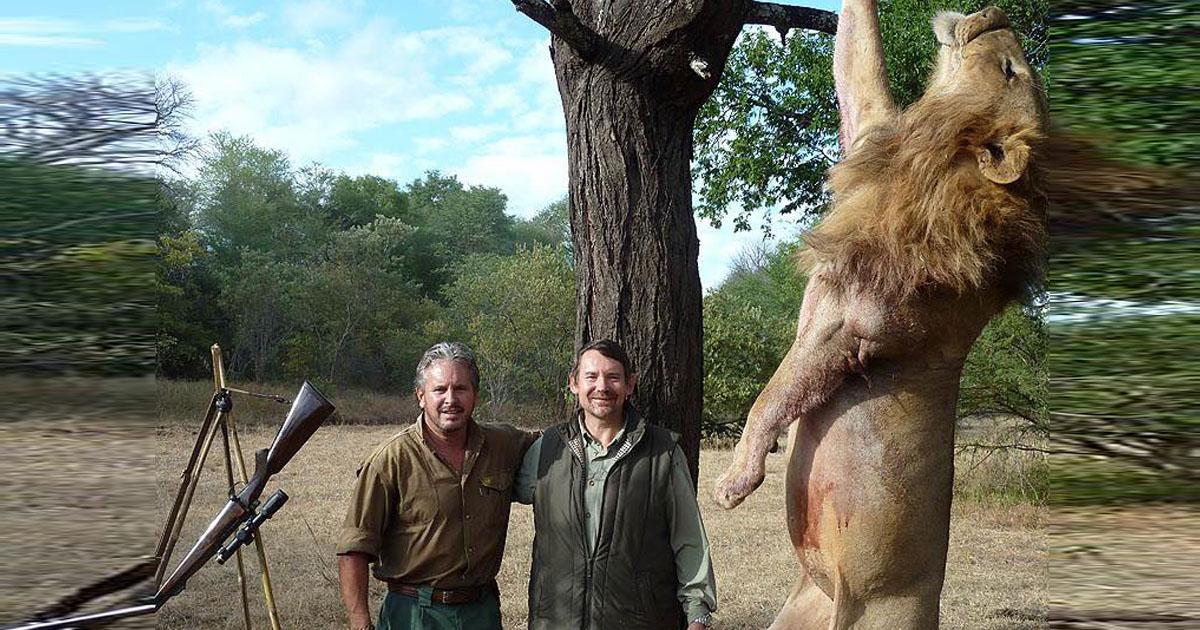Stop legal and illegal hunting of lions in danger of extinction around the world with jail sentences and fines
people signed. Let's get to 20,000!

Addressed to: United Nations and 6 more
For some wealthy foreigners, it is the dream of a lifetime, the great African adventure: the thrill of hunting a lion. Now, the killing of a famous feline from Zimbabwe has caused worldwide repudiation and focused the spotlight on what many consider a cruel, sometimes illegal, industry that threatens the survival of numerous species.
Hunting is prohibited in Kenya and Botswana, whose economies rely heavily on money generated by tourists who want to enjoy excursions into the jungle or desert that combine a sense of adventure with comfortable accommodations.
Other nations, including South Africa, Namibia and Tanzania, allow it, claiming that it benefits the communities and allows them to fund activities aimed at preserving nature. Detractors, however, argue that governments often do not enforce regulations or are directly ignored by unscrupulous tour operators.
It is an industry that generates about 490 million dollars per year. Numerous ecologists, however, say that this figure is inflated to justify the thesis that hunting has a great economic impact.
In a 2013 report, a group called Economists at Large estimated that the hunt produces about 200 million dollars that go to African communities, although he clarified that we must "use with great care" that figure, which represents a very small percentage of the money generated by tourism.
Lions are listed as vulnerable in a "red list" of endangered species. An estimate indicates that there are less than 20,000 wild lions, representing a decline of 40% in the last two decades. Another speaks about 30,000.
The International Union for the Conservation of Nature highlights that there have been successful programs designed to protect lions in southern Africa, but that those in West Africa are in serious danger and that the lion population of East Africa is also declining at an accelerated pace .
"Our goal is to understand the dangers faced by lions and use the latest advances in science to find solutions to these threats," said unit director David McDonald on his website. He revealed that his unit follows the steps of more than 100 lions through satellites.
Prince Mupazviriho, permanent secretary of Zimbabwe's Ministry of the Environment, Water and Climate, said hunting a lion with a collar was an isolated incident. "The issue is not to kill animals indiscriminately to reduce their number, it has to be done in a scientific way, which in turn generates resources for things like conservation," he said.
This year, Zambia lifted a hunting ban on lions and other felines in force two years ago, local press reported in May.
On its portal, an organization called Central African Wildlife Adventures offers hunting excursions in the Central African Republic, although it has suspended them for now due to instability and political violence. Its portal describes an almost mystical experience in which the hunter and the prey are equal.
He says that "the last contact usually takes place at a short distance." The lion appears from nowhere in the green foliage, without warning without making a sound, the King of the Jungle is suddenly there and it is time for the two predators to confront each other. most powerful on Earth. "
It should be noted that Safari Club International (SCI), an organization that groups hunters, issued a statement that they "support a full and exhaustive investigation of the circumstances surrounding the death of Cecil the lion in Zimbabwe." SCI has imposed immediate suspensions of members of both the hunter involved and his professional guide / hunter, awaiting the outcome of an investigation ".
Safari Club International further noted that it "condemns illegal and unethical hunting practices," says the organization, which has approximately 47,000 members worldwide, many of whom also hunt throughout the world.
SIGN AND SHARE THIS PETITION
The content of the petitions and the opinions expressed here are the sole responsibility of the author.
